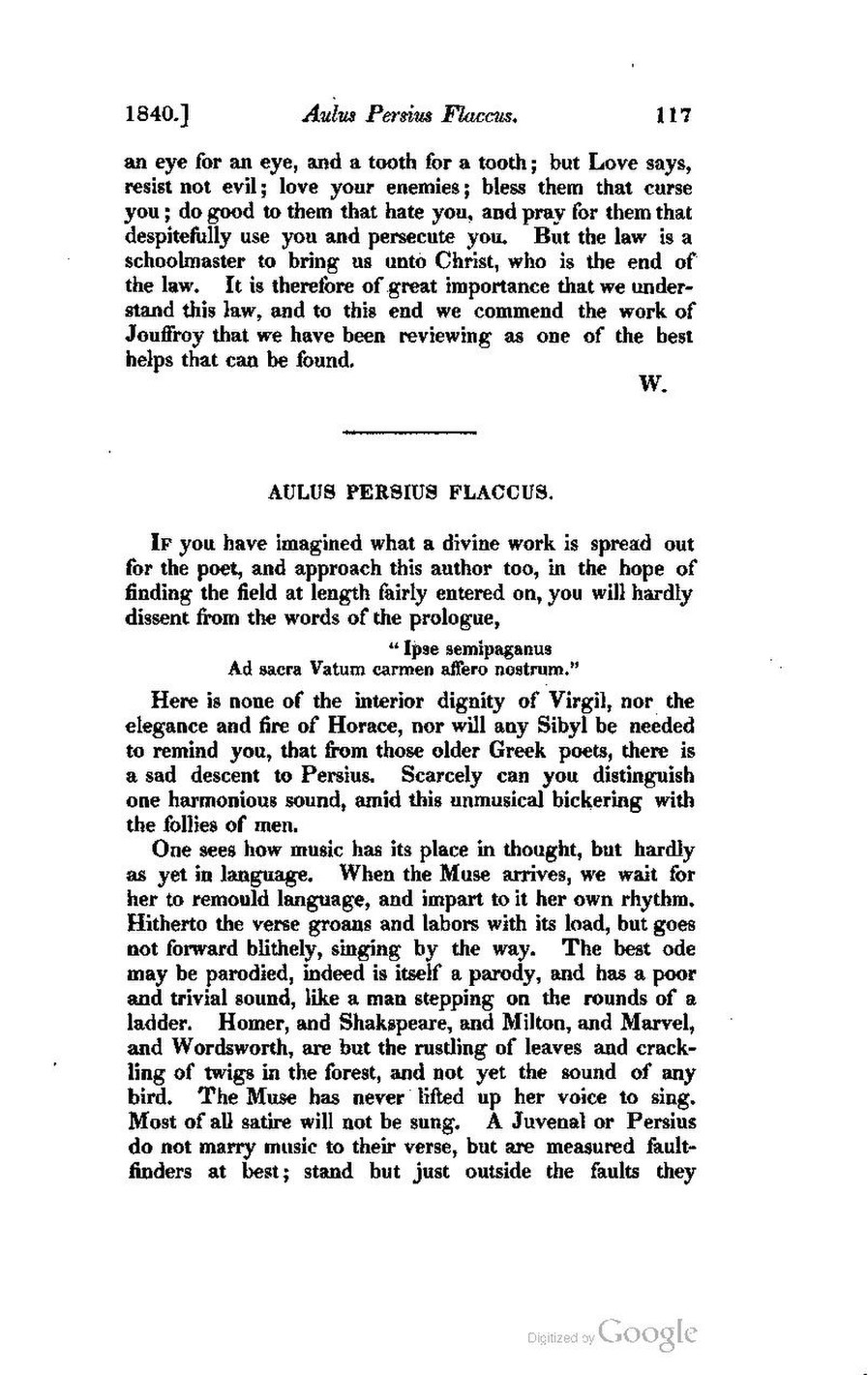an eye for an eye, and a tooth for a tooth; but Love says, resist not evil; love your enemies; bless them that curse you; do good to them that hate you, and pray for them that despitefully use you and persecute you. But the law is a schoolmaster to bring us unto Christ, who is the end of the law. It is therefore of great importance that we understand this law, and to this end we commend the work of Jouffroy that we have been reviewing as one of the best helps that can be found.
AULUS PERSIUS FLACCUS.
If you have imagined what a divine work is spread out for the poet, and approach this author too, in the hope of finding the field at length fairly entered on, you will hardly dissent from the words of the prologue,
“Ipse semipaganus
Ad sacra Watum carmen affero nostrum.”
Here is none of the interior dignity of Virgil, nor the elegance and fire of Horace, nor will any Sibyl be needed to remind you, that from those older Greek poets, there is a sad descent to Persius. Scarcely can you distinguish one harmonious sound, amid this unmusical bickering with the follies of men.
One sees how music has its place in thought, but hardly as yet in language. When the Muse arrives, we wait for her to remould language, and impart to it her own rhythm. Hitherto the verse groans and labors with its load, but goes not forward blithely, singing by the way. The best ode may be parodied, indeed is itself a parody, and has a poor and trivial sound, like a man stepping on the rounds of a ladder. Homer, and Shakspeare, and Milton, and Marvel, and Wordsworth, are but the rustling of leaves and crackling of twigs in the forest, and not yet the sound of any bird. The Muse has never lifted up her voice to sing. Most of all satire will not be sung. A Juvenal or Persius do not marry music to their verse, but are measured fault finders at best; stand but just outside the faults they
